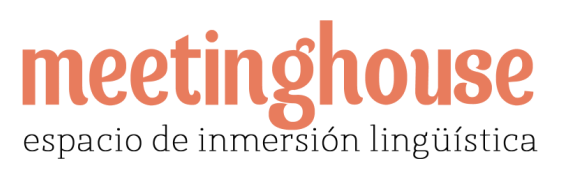|
5/29/2015 0 Comments May Week FourThis week we based our discussion on the marvels and mysterious of the human brain.
LISTENING To practice your listening skills, learners can try a video about differences between men and women's brains, about how technology addiction can affect the brain, and about the connection between music and the brain. For original version, check out an episode from Invisibilia, The Secret History of Thoughts or Radiolab's When Brains Attack. READING Learners can try a text called Your Plastic Brain, or Being Bilingual Boosts Brain Power. For original version reading, try a recent New Yorker article about Brain Stimulation or any of the articles in the On The Brain archive. WRITING How about you and your brain? This week you could write about the brain and technology. What brain technologies do you hope will be invented in your lifetime. To erase memories? To preserve memories? Would you use technologies and why? Best, Kelly
0 Comments
5/24/2015 0 Comments May Week ThreeToday we discussed one of the most famous art thefts in history, the robbery of 13 masterpieices from the Isabella Stewart Gardner Museum in Boston. We used this to discuss art, painting, and the famous theft.
In class we used a fantastic online exhibit to explore the museum and the stolen work. Check it out here online. LISTENING To practice your listening skills, learners can try an activity and quiz about Rembrandt or listen to a biography of Isabella Stewart Gardner. For original version, check out this fascinating radio story about a detective who tracks down stolen art or listen to a podcast that covers the Gardner Heist. READING Learners can try a reading comprehension activity about a stolen Picasso in Brazil. For original version reading, check out an interactive about the most famous art heists in history or the FBI's website about how they handle art theft. WRITING You have a few options this week for writing. You could write about the Gardner theft and what you think happened. Where did the robbers take the paintings? What did they do with them? Use your imagination and be descriptive. Or you can describe a famous painting. Check out Google's Art Project which allows you to explore museums from around the world. FYI, here's a follow-up about Dzhokar Tsarnaev (the Boston Bomber we talked about a few weeks ago). Last Friday he was sentenced to the death penalty. You can find more information here. Best, Kelly 5/17/2015 0 Comments May Week TwoIt happens every year of course, the once-a-year class where we can down and dirty with pronuciation! That means individual sounds (think minimal pairs), rhythm and intonation. There are several general resources that I recommend:
LISTENING To practice your listening skills, learners can try one of the many listening excersises regarding pronunciation and minimal pairs at American English Pronunciation Practice or some of the BBC radio programmes that talk about pronunciation. For original version, check out Sarah Jone's great TED Talk where she assumes the role of many different characters just by changing her accent. READING Learners can try an interesting and hopefully useful article called Accent Reduction: Improving Pronunciation Skills or 7 Tips to Drastically Improve Your English. For original version reading, try an article about the Decline of the NY Accent or Talk This Way about accents in Hollywood. WRITING So what's your plan? For writing this week I'd like you to write down what your plan is to improve your pronunciation. Do you have a model of someone to follow? Would you like to speak like Scarlett Johannsen or Brad Pitt? Describe what steps you will take to improve your pronunciation. Then, please record your writing and send me the mp3! Best, Kelly 5/10/2015 0 Comments May Week OneLast week many of you asked about what was happening in Baltimore, so this week we turned to the United States to discuss race conflicts in Baltimore and beyond.
LISTENING To practice your listening skills, learners can try a listening exercise about the International Day of Elimination of Discrimination: mp3 with transcript. For original version, try the video A Tale of Two Baltimores or one of the episodes of the critically acclaimed film Eyes on the Prize. READING Learners can try a text about fighting racism in Australia. For original version reading, read about A fascinating map of the world’s most and least racially tolerant countries, or an interesting NY Times' artilce, What Came Before Balitmore's Riots. WRITING Before starting the writing, watch this short video about discrimination. Are you surprised by the way the people react? How do you think you would react if you saw something like this? What does it reveal about unconscious discrimination? Best, Kelly 5/1/2015 0 Comments April Week ThreeThis week's topic was scandals and how the public deals with them: we talked about astonishment, news coverage, public shaming, etc.
LISTENING To practice your listening skills, learners can try listening about some famous political scandals in history: Watergate and Bill Clinton's Impeachment. For original version, try Monica Lewinski's TED talk about public shaming, or an interview with Jon Ronson about public shaming on social media. READING Learners can try reading about an empty seat scandal at the Olympics or about a Meat Scandal in China. For original version reading, try Science's Big Scandal. Other options include reading about Gamergate (scandal in the video game community), or the Worth of an Elephant. WRITING Writing time! Take a look at the photograph above. This photograph shows how public shaming as part of sentencing can help criminals get over their crimes. Do you agree with this technique? Can you think of any big scandals in your region or country? What happened? How did the public react? Best, Kelly |
Archives
April 2023
|
Search by typing & pressing enter

 RSS Feed
RSS Feed
